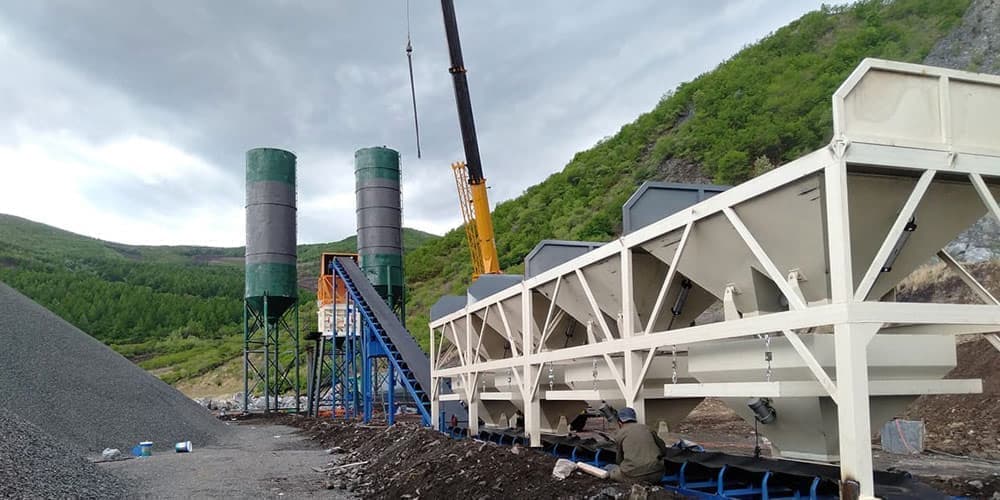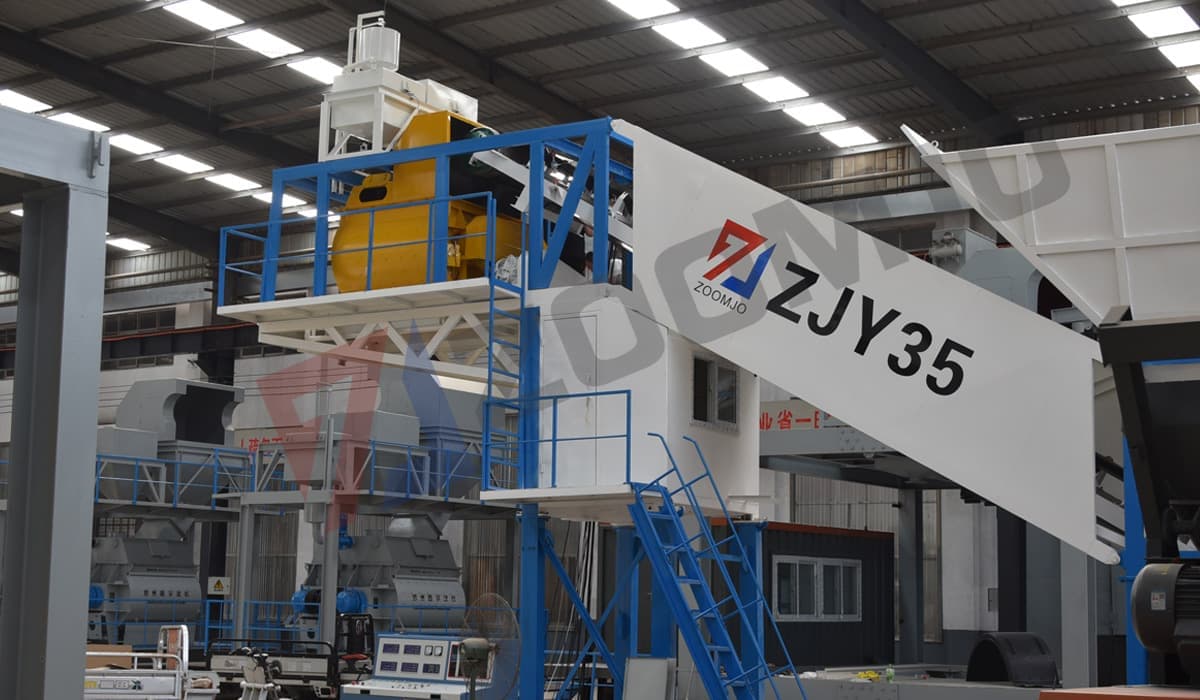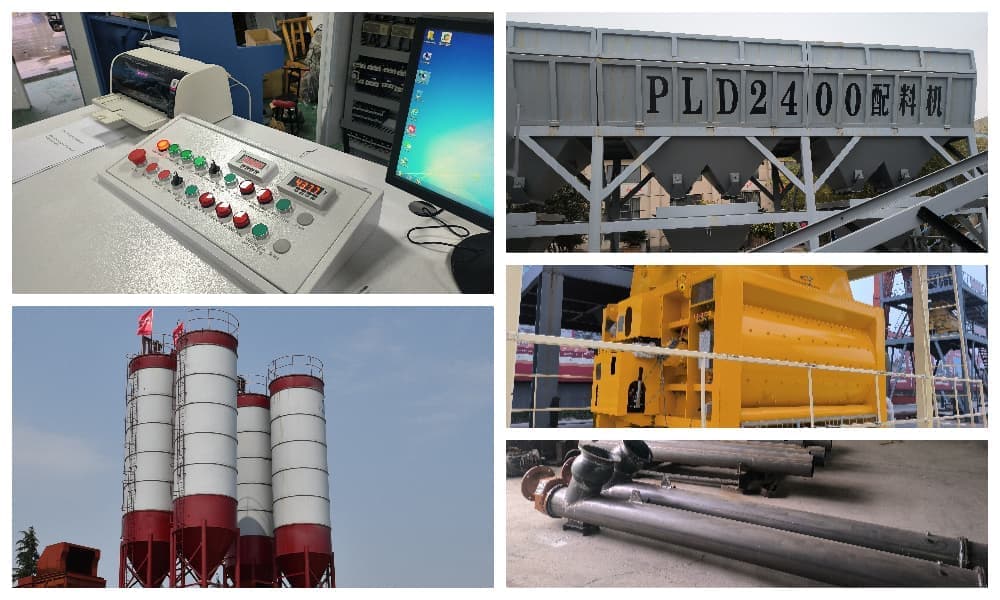How do I Reduce the Cost of Concrete Batching Plant?

In the construction industry, concrete batching plant is a key facility for producing concrete, and its cost directly affects the economy of the whole project. As a professional concrete batching plant manufacturer, ZOOMJO under stands the importance of reducing the cost of concrete batching plant for our customers. In this article, we will discuss how to effectively reduce the cost of batching plant from a professional point of view, which will help investors, project managers and engineers to maximise the budgetary benefits under the premise of ensuring the quality and efficiency of the project. Below are some effective cost reduction strategies:
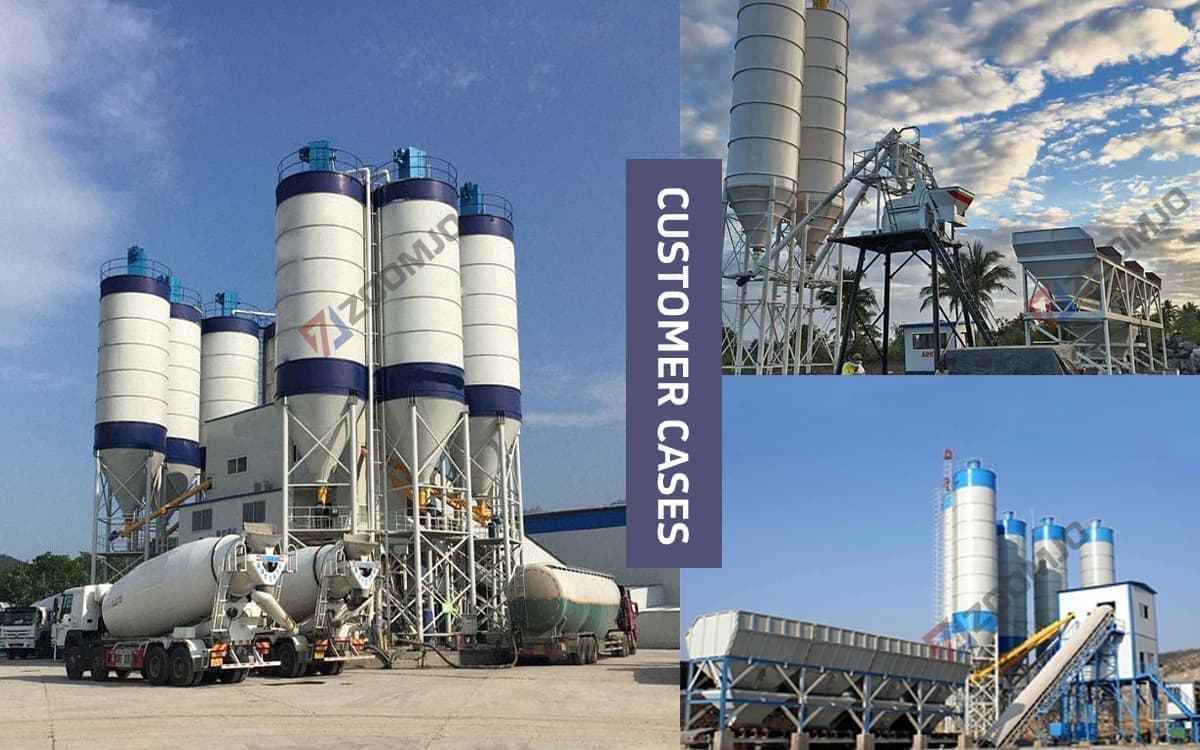
1. Procurement and selection of concrete mixing plant equipment:
Conduct in-depth market research and select suitable suppliers:
-
Multiple comparisons: don't just focus on a single supplier, you should collect extensive market information and compare the product quality, technical level, after-sales service and price of different manufacturers or suppliers.
-
Examine the strength: choose manufacturers with good reputation, production scale and technical strength to ensure that the quality of equipment and after-sales service is guaranteed.
-
Localisation strategy: Priority should be given to local or regional suppliers, which can reduce transport costs and after-sales service response time.
Choose the right model of mixing plant according to the project requirements:
Selection of stationary vs mobile concrete batching plant:
-
Fixed concrete batching plant: It is suitable for long-term and continuous projects such as large-scale construction projects and commercial concrete production. The advantages are strong production capacity, complete configuration, and efficient production of large quantities of concrete; the disadvantage is poor flexibility, once the installation location is fixed, it is not easy to relocate. Therefore, the selection of stationary equipment should give full consideration to the scale of the project and long-term concrete demand to ensure that the equipment meets the supply of the entire project.
-
Mobile concrete batching plant: With the characteristics of strong mobility, convenient installation, high efficiency and reliability, economical, etc., it is suitable for small and medium-sized construction projects, temporary works, or projects that require frequent transfer. The mobile plant can be quickly relocated and installed at different construction sites, significantly saving time and cost. For projects with site constraints or short construction periods, the choice of mobile equipment can also effectively reduce site rental and equipment relocation costs.
Capacity Matching:
Accurately assess the concrete output required for the project to avoid choosing equipment that exceeds the actual demand, resulting in a waste of investment. For example, choose small mixing plant (such as HZS25, HZS35) for small projects and large mixing plant (such as HZS120, HZS180) for large projects.
Modular design:
Considering the modular design of the mixing plant, it can be flexibly configured according to the project requirements and reduce the initial investment.
Customisation for special requirements: If the project has special requirements (e.g. environmental requirements, special concrete ratios, etc.), it should be fully communicated with the manufacturer to customise the appropriate equipment to avoid additional costs brought about by later transformation.
Prudent consideration of used concrete batching plant:
-
Strict assessment: Before purchasing used equipment, a comprehensive technical assessment must be carried out to check the equipment's service life, maintenance records, and wear and tear of key components.
-
Choose reliable channels: Choose reputable suppliers of used equipment or buy through regular channels to avoid purchasing poor quality equipment.
-
After-sales service: Check whether the used equipment provides after-sales service and spare parts support.
Negotiate effectively for a more favourable price:
-
Bulk Purchase: If there are multiple projects or long-term cooperation plans, negotiate bulk purchase prices with suppliers.
-
Payment: Flexible use of payment methods, such as prepayment discounts, instalment payments, etc., to obtain more favourable terms.
-
Long-term co-operation: Establish long-term co-operation with suppliers to get more stable price and better service.
2. cost control during the operation and maintenance phase of the equipment:
Optimising energy efficiency and reducing operating costs:
-
Energy-saving equipment: Select equipment that adopts energy-saving technologies such as energy-saving motors, frequency conversion control systems, and optimised mixer structures.
-
Reasonable use of electricity: Optimise the production plan, avoid idling and long standby time of equipment, reduce energy consumption.
-
Energy management: establish a perfect energy management system, regularly monitor and analyse energy consumption, and find out the potential for energy saving.
Regular maintenance and repair to prolong the service life of the equipment:
-
Preventive maintenance: Establish a detailed maintenance plan, regularly inspect, lubricate, clean and replace wearing parts of the equipment to prevent failures.
-
Professional maintenance team: establish a professional maintenance team or co-operate with professional maintenance service providers to ensure timely and effective maintenance of equipment.
-
Spare parts management: Establish a reasonable spare parts inventory to ensure timely replacement when needed and reduce downtime.
Optimise logistics management to reduce transport costs:
-
Reasonable location: The location of the mixing plant should be close to the origin of raw materials and the construction site, so as to shorten the transport distance.
-
Mode of transport: Choose the suitable mode of transport according to the actual situation, such as road, railway, waterway, etc., to reduce the transport cost.
-
Transport plan: Reasonably arrange the transport plan to avoid empty vehicles and long waiting time.
3. Cost control in other areas:
-
Personnel training: Professional training for operators to improve their operating skills and maintenance awareness and reduce losses caused by human error.
-
Information management: Adopt information management system to comprehensively monitor and manage production, operation and maintenance to improve efficiency and reduce costs.
-
Waste recycling: Establish a perfect waste recycling system to recycle waste concrete, sand and gravel to reduce the cost of raw materials and environmental pollution.
Summary:
Reduce the cost of concrete batching plant is a systematic project, need to be in the equipment procurement, operation, maintenance and other aspects of comprehensive consideration and effective control. Through the implementation of the above strategies, the cost of concrete batching plant can be effectively reduced and the economic efficiency of the project can be improved. Remember, cost control is not at the expense of quality and efficiency, but under the premise of ensuring quality and efficiency, through scientific management and reasonable strategies to achieve cost optimisation.
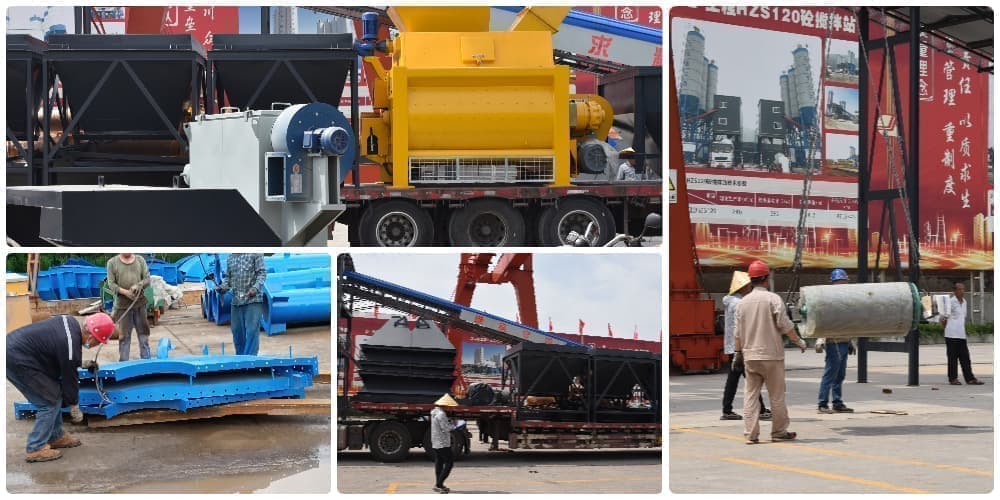
About ZOOMJO GROUP
ZOOMJO GROUP is a leading construction machinery manufacturer in China, specialising in the research, development, production, sales and service of construction machinery such as concrete mixing plant, asphalt mixing plant, dry mortar mixing plant and gravel crushing production line, as well as the provision of ancillary equipment such as batching plant, conveyor and cement silo.
Core Advantage:
-
Rich Product Line: Provide diversified choices of stationary and mobile concrete mixing plant, asphalt mixing plant, dry mortar mixing plant, and gravel crushing production line.
-
Global Business Layout: Our products are sold well both at home and abroad, and we provide a full range of services such as equipment installation, commissioning and maintenance.
-
High-end market orientation: Focusing on product quality and technological innovation, we are committed to providing customers with high-performance and highly reliable equipment.
-
Strong R & D strength: independent R & D capabilities, product technology is mature, and the introduction of advanced technology to ensure that the products are always at the forefront of the industry.
Technical innovation and customer value:
We continue to invest in research and development, and constantly introduce advanced concrete production technology to provide customers with more efficient, environmentally friendly, energy-saving batching equipment. Example:
-
Advanced mixing and batching technology: Adopting new mixing technology and precise batching system to significantly improve the uniformity and quality stability of concrete.
-
Intelligent management system: Intelligent management system is introduced to achieve real-time monitoring, data analysis and optimisation of the production process, which provides customers with accurate production decision support and improves production efficiency and management level.
Customised solutions and professional services:
We understand that each customer's needs are different, so we provide highly customised equipment and service solutions. According to the customer's project characteristics, production scale, budget and other factors, tailored to the most appropriate equipment configuration and production programme. At the same time, we provide a full range of technical support and consulting services to help customers solve various problems encountered in the production process, to ensure that customers get the best experience and return on investment.
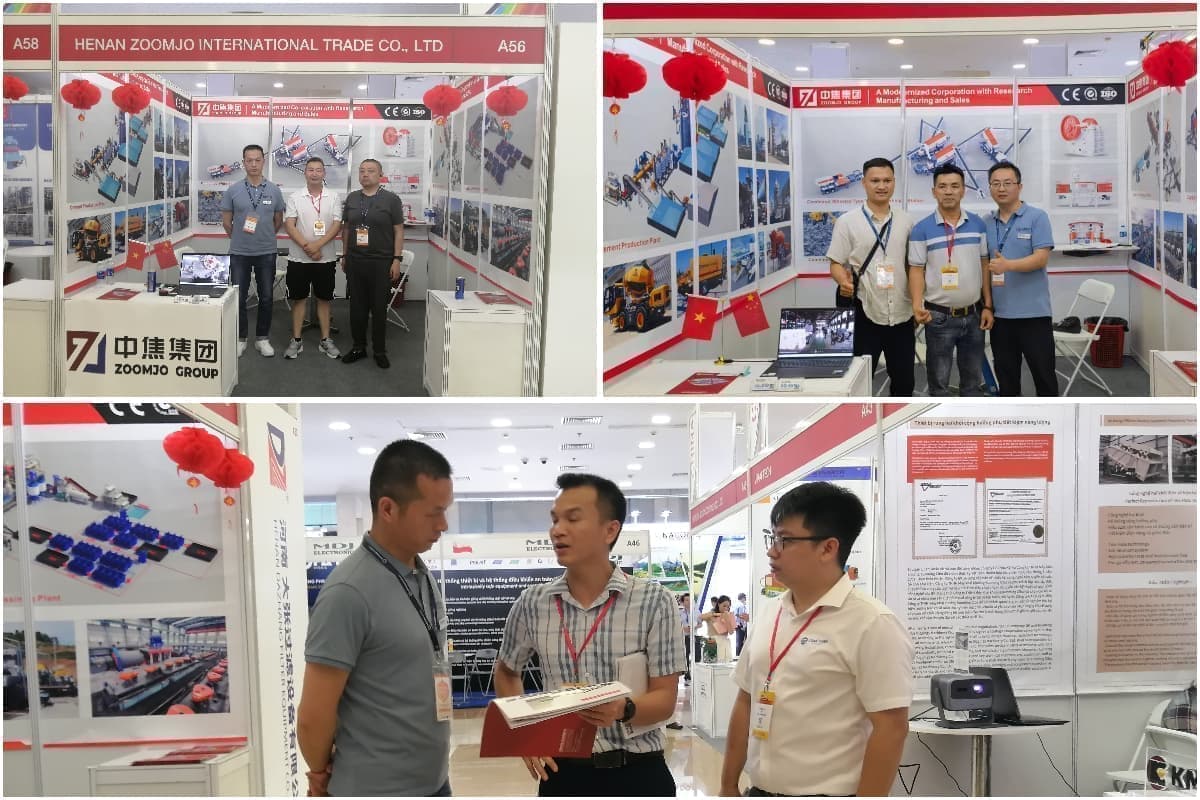
Frequently Asked Questions about Concrete Batching Plant
1. What should I ask when contacting a mixing plant manufacturer?
-
Models and parameters: find out the production capacity, configuration and technical parameters of different models of mixing plants.
-
Equipment price and payment method: ask about the price, payment method and delivery period of the equipment.
-
Installation and commissioning: Confirm whether the manufacturer provides equipment installation and commissioning services, as well as the related costs.
-
After-sales service: find out the content of the manufacturer's after-sales service, including warranty period, maintenance service and spare parts supply.
-
Successful cases: Ask about the manufacturer's successful cases in similar projects to assess its experience and strength.
-
Technical support and training: Confirm whether the manufacturer provides technical support and operator training.
2. What information do I need to prepare before contacting the manufacturer?
-
Project type and size: Identify whether the project is a building project, bridge construction, or some other type, and determine the size.
-
Concrete demand: Estimate the total amount of concrete required for the project and the daily/hourly demand during peak periods.
-
Site conditions: Understand the space, topography and transport conditions of the construction site to decide whether to choose a stationary or mobile mixing plant.
-
Budget: Determine the investment budget range so that the manufacturer can recommend the right equipment configuration.
-
Special requirements: whether there are special technical requirements, such as environmental standards or special concrete ratios.
3. The importance of choosing a professional mixing plant manufacturer
-
Technical strength and experience: professional manufacturers have rich industry experience and can provide advanced and reliable equipment and technical support.
-
Product quality and performance: Attaching importance to product quality and using high-quality raw materials to ensure the stability and durability of the equipment.
-
Customised solutions: provide customised equipment configuration according to specific needs to meet project requirements.
-
Perfect after-sales service: provide comprehensive after-sales service to ensure smooth production.
-
Long-term co-operation guarantee: choose manufacturers with good reputation and establish long-term co-operation relationship to support future development.
4. How to choose the right mixing plant manufacturer?
-
Examine the qualification and reputation: learn about the manufacturer's production qualification, industry certifications and customer reviews.
-
Visit the production base: to inspect the production capacity, technical level and management level of the manufacturer on the spot.
-
Comparison of programmes and quotations: Compare from many sides and choose the manufacturer with the best cost performance.
-
Focus on after-sales service ability: choose the manufacturer who can provide timely and professional after-sales service.

 English
English  Español
Español  简体中文
简体中文  Pусский
Pусский  українська
українська 